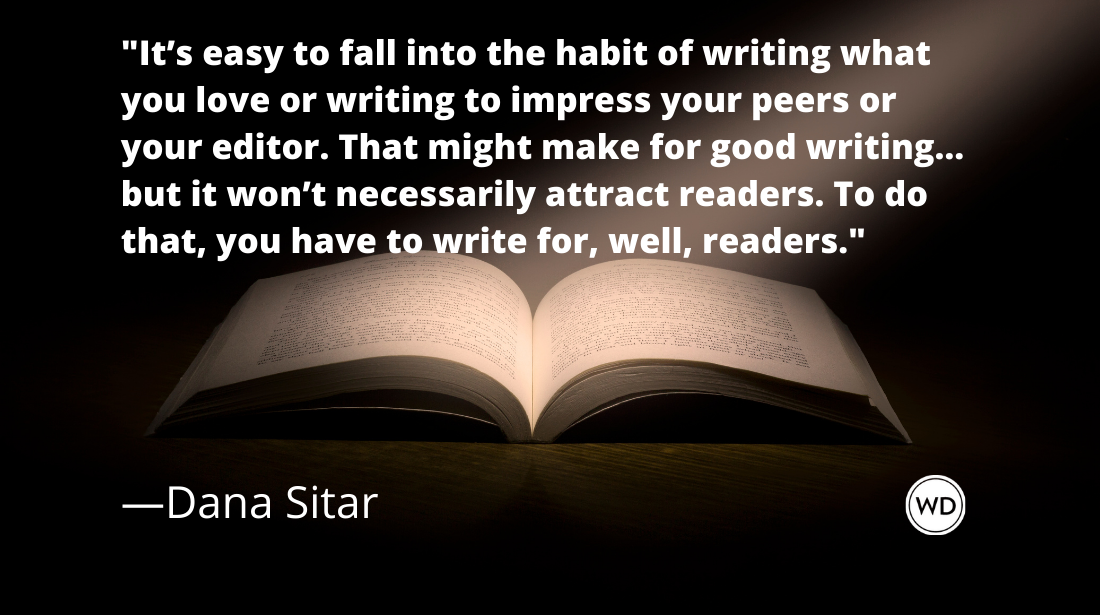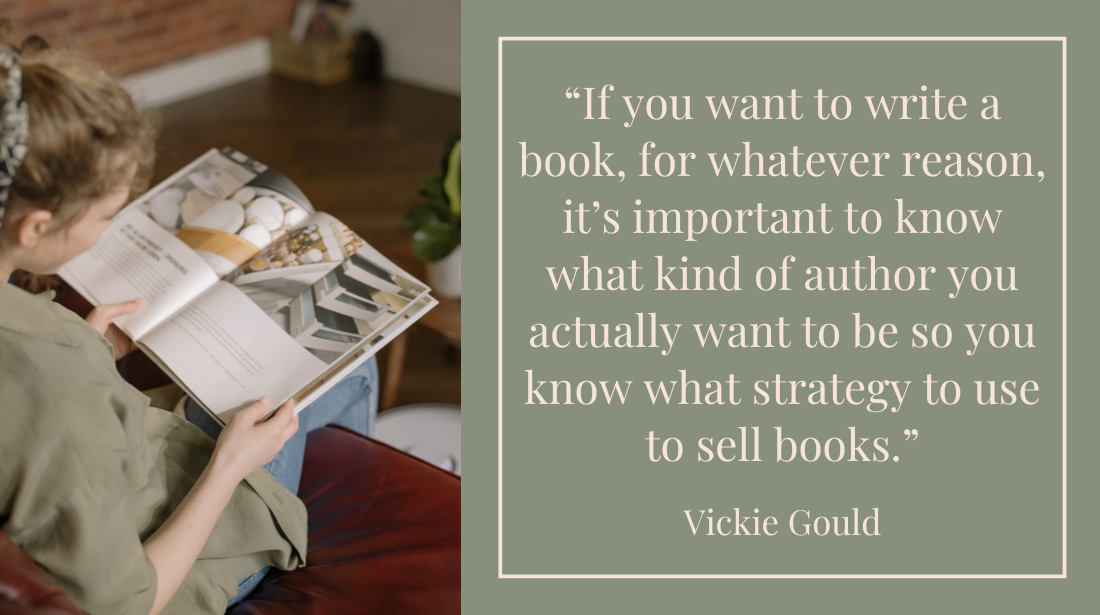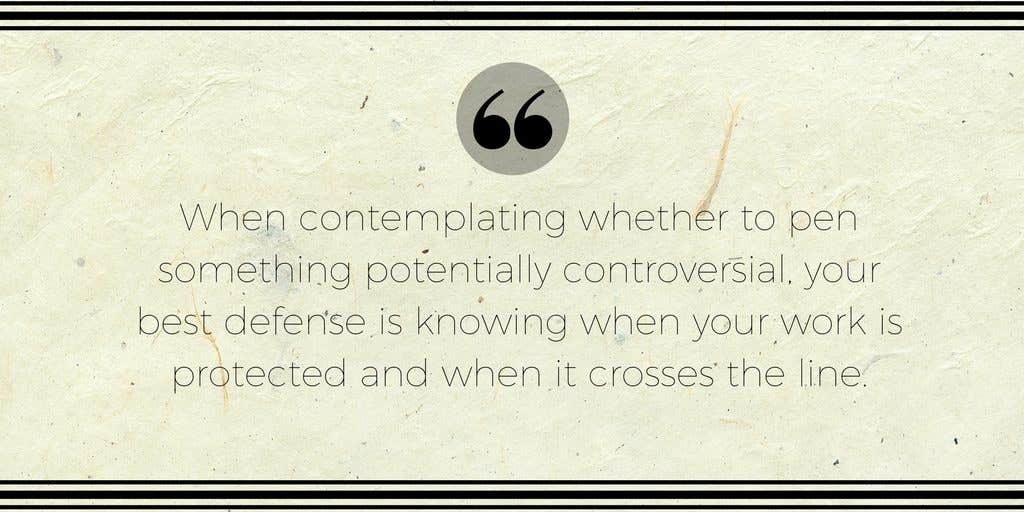More Bang for Your Buck
Some of the keys to building a successful writing career cost moneya novelty most writers can’t afford to waste. Here’s how to invest in your career wisely.
I held the brochure for screenwriting software in one hand and a screenwriting conference registration form in the other. Both would help me take the next steps in my writing career.
But I could do neither.
I'd blown my writing "slush fund" on an expensive conference for a genre I didn't even write—simply because most members of my writing club had registered to attend. My inexperienced decision resulted in a waste of money that could've easily paid for both the screenwriting software and the screenwriters' conference fee. It was then that I realized I'd need to be wiser when investing to advance my career.
Writers have to strike a happy medium between shopaholic and spendthrift tendencies, because costs can add up long before your first royalty check arrives. Over time, I've learned to crunch the numbers on where and when to spend. With the right mind-set, you'll learn when to open your wallet and when to keep it snapped shut.
Conferences
There's no shortage of writing conferences, workshops and seminars. And they all offer help in finding answers that can lead to selling your work. I've never attended an event where I didn't learn something. I've attended plenty, however, that didn't offer the help I really needed at the time to continue on the path to selling my work.
Who should I blame for not getting my money's worth? Me. I had no plan for weighing the investment against its benefits. Before dishing out a registration fee, ask yourself these key questions:
What other conference options do I have? A little research online and in writing magazines like this one will help you find conferences and workshops best suited to your needs. These events are usually advertised months, perhaps even a year, in advance. Their fees and locations vary, and, if you can find one within driving distance, you can save some additional money on travel.
Will the offered topics help me reach my current goals? New writers hoping to learn about formatting and novel structure may find a seminar or workshop geared toward marketing a finished manuscript to be confusing and overwhelming. Make sure the workshops offered meet your specific needs.
What are the speaker's credentials? An author published only in nonfiction can offer limited advice on getting your fiction into print. A literary agent may not know the ins and outs of selling to Hollywood.
Will I be able to pitch my manuscript to editors, agents and other professionals seeking projects such as mine? When you're really ready to sell, conferences that don't offer appointments or networking time might not be helpful.
Contests
The No. 1 reason you should participate in contests is to get your work noticed by the right person and obtain feedback that makes the manuscript salable. Winning prize money is nice, and you can restock your slush fund, but you ultimately want a chance at long-term sales.
Entering contests can become quite pricey. To ensure a contest is worth the entry fee, be certain you comprehend and feel comfortable with the competition's structure. Consider whether the contest's structure allows your work to be reviewed by a professional who could sign you to a contract; judges should be published authors, editors or agents.
It's also important to know if judges will offer feedback to contestants. If the guidelines don't mention critiques, be sure to find out whether commentary will be available before entering.
Always verify the contest's legitimacy. Check out the sponsors. Who are they? Are they legit? Do they require you to buy something to enter? If you still have doubts, ask for references. The sponsoring organization should be able to provide information about past winners and judges.
The costs of a contest should be minimal in comparison with what you have to gain.
Writers' tools
There's no doubt an author needs the right tools to do the best job possible. However, an avalanche of reference books, software and writer's gadgets becomes a waste. Every successful business professional streamlines expenses.
The Internet is an essential expense. The World Wide Web offers infinite knowledge on anything you might ever hope to research or learn for little or no cost. Also, it gives you easy access to publishers' Web sites, most of which contain the submission guidelines you need.
There are good marketing books that provide information on publishing houses and agents and can help you narrow your search down to publishers that accept books like yours. They can be valuable, if costly. But before purchasing any resource book, contemplate its shelf life. Book resources can grow out-of-date soon after they're published, so choose moderately priced marketing resources over more expensive items. And consider online outlets, such as WritersMarket.com, for current listings of publishers, agents, production companies and other information. The minimal annual fee at a reputable site can be cheaper than accumulating a physical library of reference guides. Likewise, a subscription to a good writing magazine may be a better bargain than buying numerous how-to books.
It's also important to choose computer programs wisely. I use a screenwriting program to save time, because it formats every element of a script. Before buying any writing-tool software, take it for a test drive. Software distributors often offer free demos either on disk or through downloads from a Web site. See if the features satisfy your needs. Any writing tool you purchase should be user-friendly. If it's too complex, how likely are you to use it?
Should you pay your dues?
Local, regional and national writing organizations serve useful functions for both the published and unpublished. All provide a place of support for those journeying the road to publication. But, as when shopping for a pair of shoes, the organizations you consider should fit both your budget and your needs.
Narrow the possibilities by considering your ability to participate. You'll generally gain more by being involved than merely watching. Membership becomes cost-effective if it offers more than educational publishing information. Networking possibilities will usher you toward your desired goal.
If there are no associations in your area, the next best alternative for your money is to find one that offers a newsletter and Web site filled with resources to assist writers seeking publication. Some of these organizations also sponsor online message groups that aid you in networking.
Investing to advance your career doesn't have to be painful. It's all a matter of balance. Investment equals return. Be a good money manager and you'll be able to afford taking the next step in your writing career.









